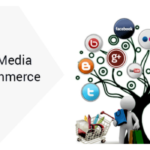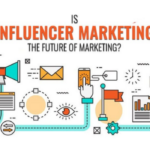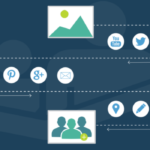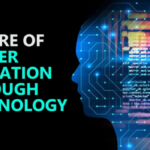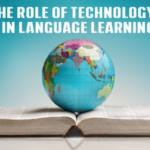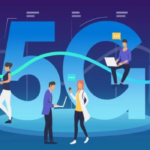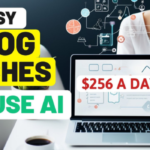Introduction
A. Definition of AI in Marketing: This section provides a brief explanation of what Artificial Intelligence (AI) entails in the context of AI marketing.
B. Significance of AI in the Marketing Landscape: Here, we discuss why AI has become increasingly important in marketing strategies and its potential impact on the industry.
Opportunities Presented by AI in Marketing
A. Enhanced Personalization: Discuss how AI enables marketers to deliver tailored experiences to individual customers by analyzing vast amounts of data.
B. Predictive Analytics: Exploring the power of AI-driven predictive analytics in forecasting customer behavior, preferences, and market trends.
C. Marketing Automation: Highlighting the efficiency gains and scalability achieved through Artificial Intelligence-powered automation in various marketing tasks.
D. Improved Customer Insights: Discussing how AI helps in extracting valuable insights from data to better understand customer needs and preferences.
E. Real-Time Optimization: Exploring how AI enables marketers to optimize campaigns and strategies in real-time based on data analysis and customer interactions.
Challenges in Implementing Artificial Intelligence in Marketing
A. Data Quality and Privacy Concerns: Addressing concerns related to data quality, privacy regulations, and ethical considerations in AI-driven marketing.
B. Skills Gap: Discuss the need for specialized skills and expertise in AI technologies among marketing professionals and the challenges in acquiring them.
C. Integration Complexity: Exploring the challenges associated with integrating AI tools and platforms into existing marketing systems and workflows.
D. Cost and Resource Constraints: Highlighting the investment required for implementing AI solutions and the resource constraints faced by organizations.
E. Adoption Hurdles: Discussing organizational resistance, cultural barriers, and change management challenges in adopting Artificial Intelligence technologies in marketing strategies.
Strategies for Successful Navigation
A. Prioritize Data Quality and Compliance: Providing guidelines for ensuring data quality, privacy compliance, and ethical data practices in Artificial Intelligence-driven marketing.
B. Invest in Talent Development: Recommending strategies for upskilling marketing teams in AI technologies, data analytics, and digital skills.
C. Choose the Right AI Solutions: Providing tips for selecting AI tools and platforms that align with business goals, resources, and technical requirements.
D. Foster Collaboration and Change Management: Discussing the importance of fostering a culture of collaboration, innovation, and change management to drive AI adoption.
E. Continuous Learning and Adaptation: Emphasizing the need for continuous learning, experimentation, and adaptation to leverage the evolving landscape of Artificial Intelligence in Marketing.
Case Studies and Examples
A. Highlighting successful implementations of Artificial Intelligence in Marketing by leading brands and organizations, showcasing real-world examples and results.
B. Extracting key lessons and insights from the featured case studies to provide practical guidance for readers.
Conclusion
A. Recap of Opportunities and Challenges: Summarize the main opportunities and challenges discussed in the blog post.
B. Encouragement for Embracing AI Technologies: Encouraging readers to embrace AI technologies and leverage them effectively to drive marketing success.




